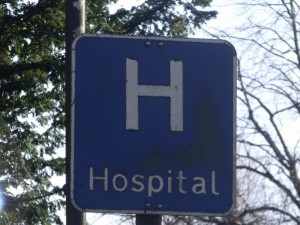
As policy makers work toward setting up the California Health Benefit Exchange--the marketplace where individuals and small businesses will be able to buy health insurance--they're grappling with questions on two fronts: what benefits the policies will offer and how to ensure that people enroll. According to a new report, 2.6 million adults under age 65 will be eligible for federal tax credits to buy insurance in this new marketplace. Of those people, 67 percent will be people of color, and 40 percent (or just over one million adults) will speak English less than very well. This lack of English proficiency could be a barrier to these people enrolling in the exchange, according to the report [PDF].
Ellen Wu is Executive Director of the California Pan-Ethnic Health Network, one of the sponsors of the report. "Language poses a barrier when people try to enroll in coverage programs," she said in an interview. "We know that it's just confusing for those of us who DO speak English well, and for those who have a different language other than English, it's even more difficult to first find the materials in their language and second to understand the terminology."
The report draws on a model created by the UCLA Center for Health Policy Research and the UC Berkeley Labor Center. It found that people with limited English skills were expected to enroll in the Exchange at lower rates than those with solid English skills. Of those million people with limited English skills who will receive subsidies, 53 percent are expected to enroll by 2019 "if language is not a barrier," says the report. But if there is not "appropriate and effective multilingual outreach and education," enrollment will fall to 42 percent, meaning 110,000 people will not enroll due to a language barrier.
Wu says she was not surprised by the study's findings. "We hear from our communities, it is very difficult for people to find information in a language they understand," she said. "This is an estimate and a model, just one piece of information of how critically important it is to not do the same things we've been doing before. ... The population of the newly insured under the Affordable Care Act is different, and we have to DO things differently to make sure that they're all included."
Wu explained that the people eligible for the subsidies are people who have been chronically uninsured for much of their lives, that they are majority people of color and 40 percent don't speak English well "which looks very, very different from our currently insured population."